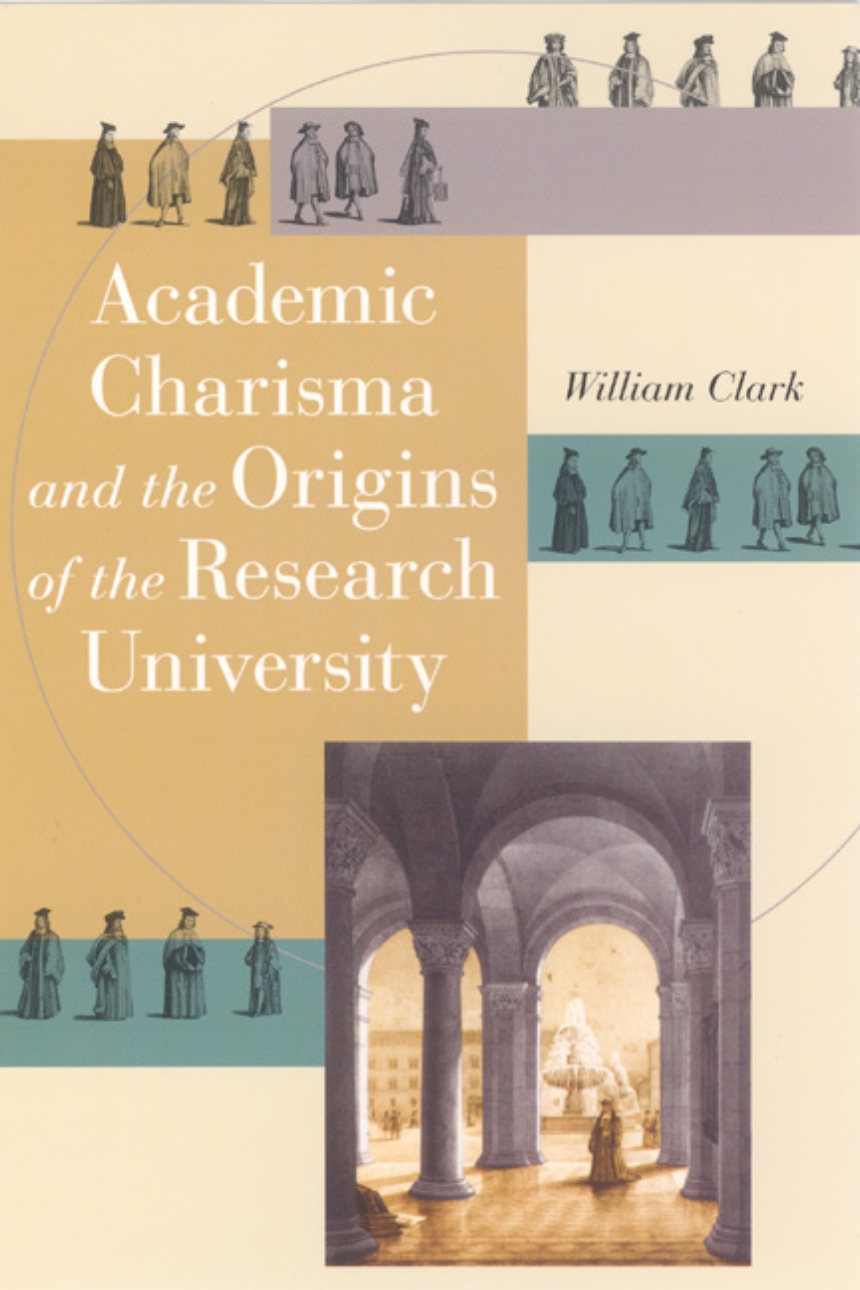Academic Charisma and the Origins of the Research University
Tracing the transformation of early modern academics into modern researchers from the Renaissance to Romanticism, Academic Charisma and the Origins of the Research University uses the history of the university and reframes the "Protestant Ethic" to reconsider the conditions of knowledge production in the modern world.
William Clark argues that the research university—which originated in German Protestant lands and spread globally in the nineteenth and twentieth centuries—developed in response to market forces and bureaucracy, producing a new kind of academic whose goal was to establish originality and achieve fame through publication. With an astonishing wealth of research, Academic Charisma and the Origins of the Research University investigates the origins and evolving fixtures of academic life: the lecture catalogue, the library catalog, the grading system, the conduct of oral and written exams, the roles of conversation and the writing of research papers in seminars, the writing and oral defense of the doctoral dissertation, the ethos of "lecturing with applause" and "publish or perish," and the role of reviews and rumor. This is a grand, ambitious book that should be required reading for every academic.
William Clark argues that the research university—which originated in German Protestant lands and spread globally in the nineteenth and twentieth centuries—developed in response to market forces and bureaucracy, producing a new kind of academic whose goal was to establish originality and achieve fame through publication. With an astonishing wealth of research, Academic Charisma and the Origins of the Research University investigates the origins and evolving fixtures of academic life: the lecture catalogue, the library catalog, the grading system, the conduct of oral and written exams, the roles of conversation and the writing of research papers in seminars, the writing and oral defense of the doctoral dissertation, the ethos of "lecturing with applause" and "publish or perish," and the role of reviews and rumor. This is a grand, ambitious book that should be required reading for every academic.
668 pages | 50 halftones, 20 tables | 6 x 9 | © 2005
Education: Higher Education
History: General History
Sociology: Social Institutions
Reviews
Table of Contents
Prologue
1. Charisma and Rationalization
Part One - Tradition, Rationalization, Charisma
On the Dominion of the Author and the Legible
2. The Lecture Catalogue
3. The Lecture and the Disputation
4. The Examination
5. The Research Seminar
6. The Doctor of Philosophy
7. The Appointment of a Professor
8. The Library Catalogue
Part Two - Narrative, Conversation, Reputation
On the Ineluctability of the Voice and the Oral
9. Academic Babble and Ministerial Machinations
10. Ministerial Hearing and Academic Commodification
11. Academic Voices and the Ghost in the Machine
Epilogue
12. The Research University and Beyond
Appendix 1
Appendix 2
Appendix 3
Appendix 4
Appendix 5
Appendix 6
Notes
Abbreviations
Bibliography
Illustration Credits
Acknowledgements
Index
1. Charisma and Rationalization
Part One - Tradition, Rationalization, Charisma
On the Dominion of the Author and the Legible
2. The Lecture Catalogue
3. The Lecture and the Disputation
4. The Examination
5. The Research Seminar
6. The Doctor of Philosophy
7. The Appointment of a Professor
8. The Library Catalogue
Part Two - Narrative, Conversation, Reputation
On the Ineluctability of the Voice and the Oral
9. Academic Babble and Ministerial Machinations
10. Ministerial Hearing and Academic Commodification
11. Academic Voices and the Ghost in the Machine
Epilogue
12. The Research University and Beyond
Appendix 1
Appendix 2
Appendix 3
Appendix 4
Appendix 5
Appendix 6
Notes
Abbreviations
Bibliography
Illustration Credits
Acknowledgements
Index
